FCC & AIS B, time for action!

I’m sorry to report that the state of FCC approval for Class B AIS may be even worse than reported last month. Today an industry source told me that even though all the Commissioners have been briefed on the Amendment and none expressed reservations, or even asked questions, it has somehow gone onto what’s known internally as the “wait and see list.” Apparently the only force that might move it along is encouragement from concerned citizens like us. So here’s my draft email to the Commissioners:
Dear FCC Commissioners,
I understand that the “Amendment of the Commission’s Rules Regarding Maritime Automatic Identification Systems” (Docket 04–344) is now on the FCC Items on Circulation list, and I write imploring you to review and sign this Amendment as soon as possible.
I have been going to sea for over forty years—both professionally and recreationally—and I feel that the Automatic Identification System (AIS) is the most important advance in marine safety since radar. The Amendment before you is the one remaining step before U.S. boaters can benefit from the Class B form of AIS.
Class B transponders are now being used in many countries, and there have been no reports of problems I’m aware of (I cover marine electronics for several magazines and also at www.panbo.com). I have also tried a Class B transponder myself—outside U.S. waters—and found that it worked well, usefully providing my vessel’s position and ID to ships in our vicinity, and vice-versa.
I further understand that all the Class B transponders whose distribution awaits the FCC Amendment have already been approved by the U.S. Coast Guard, which, in fact, asked the FCC to expedite its approval. I believe the Coast Guard sees Class B transponders as valuable both for collision avoidance and also for Homeland Security. I strongly agree.
Finally, I’d like to point out that—perhaps unlike some regulations before you—signing this Amendment will enable a free market, not restrict one. Thousands of boaters are anxious to purchase Class B AIS units, and several worthy manufacturers have them stacked in warehouses ready to ship. Please let the U.S. Class B AIS market begin.
Sincerely, Ben Ellison, Camden, Maine
The email is a work in progress, at least until tomorrow morning, and your edit suggestions are welcome. Better yet, use it to draft your own email and send it via this link which should initiate an email to all 5 FCC Commissioners. If that doesn’t work, their individual email addresses are listed here.
And what’s this screen shot below? By pure coincidence, yesterday I tried out a very unusual—you might even say “pirate”—AIS transponder that’s catching on amongst some blue water cruisers. It’s not approved by the FCC or any agency, and could conceivably cause problems amongst other transponders, but it’s attractive because it’s available and inexpensive. My point: the appeal of pirate hardware might be considerably diminished if the FCC would let the legitimate AIS industry progress by opening the huge U.S. market.
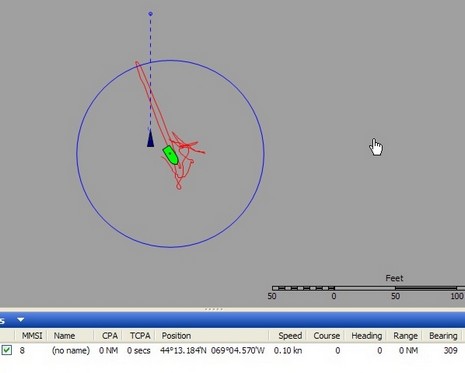


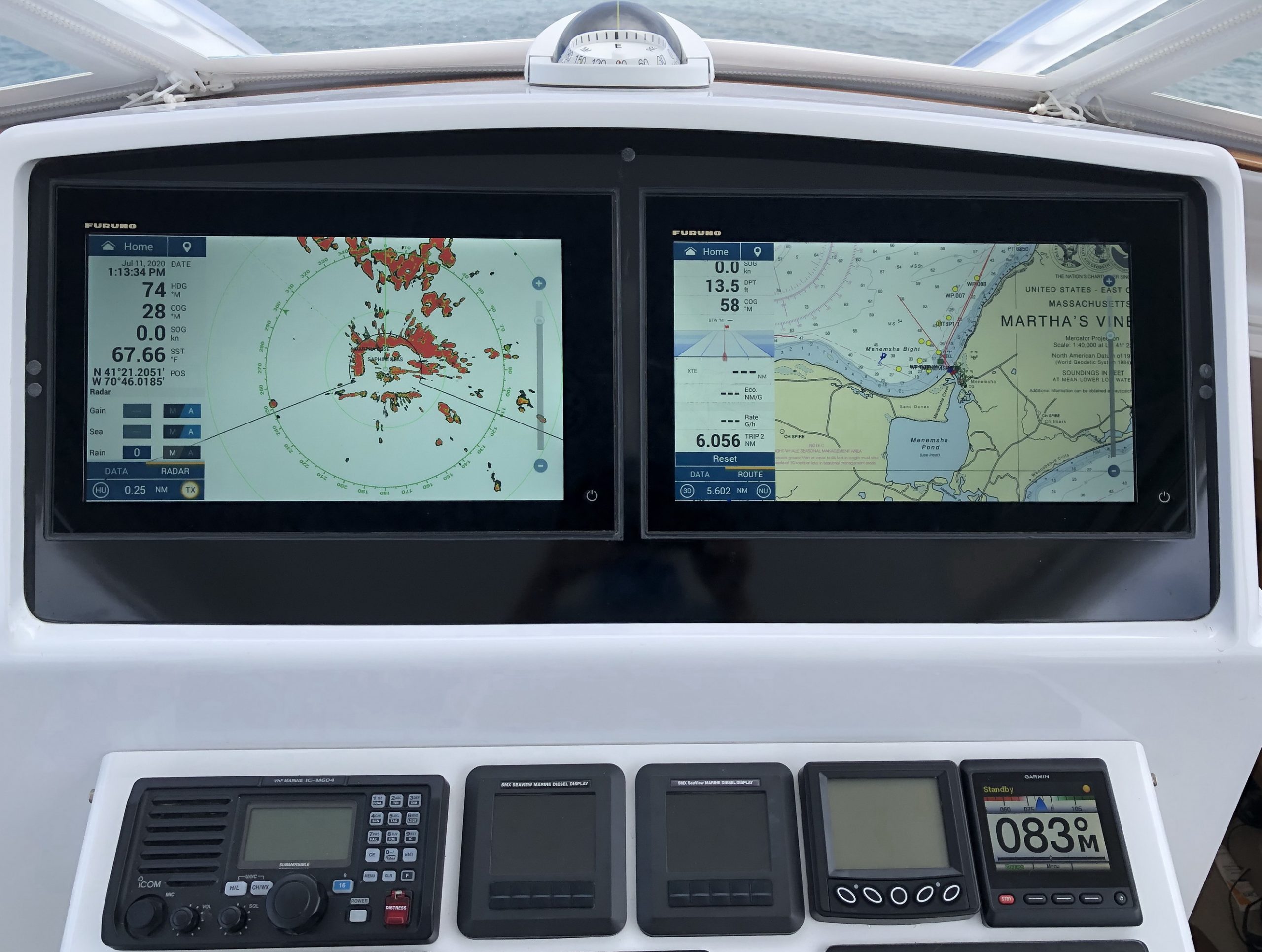
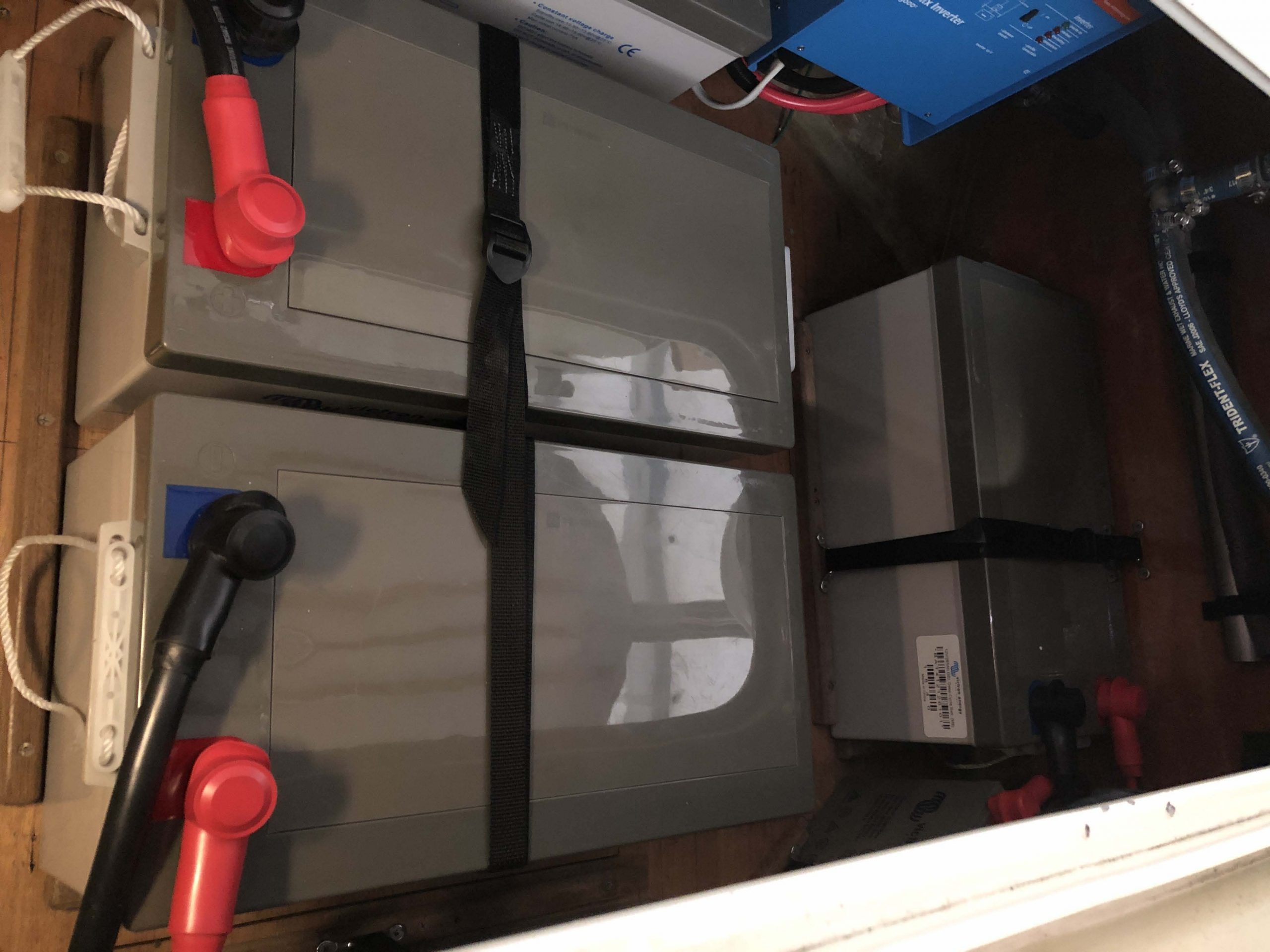
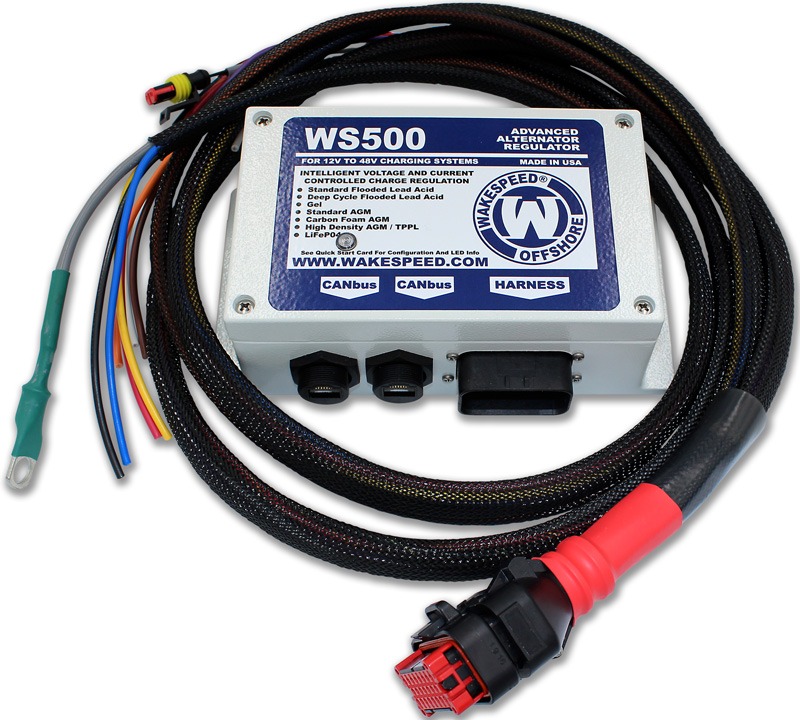
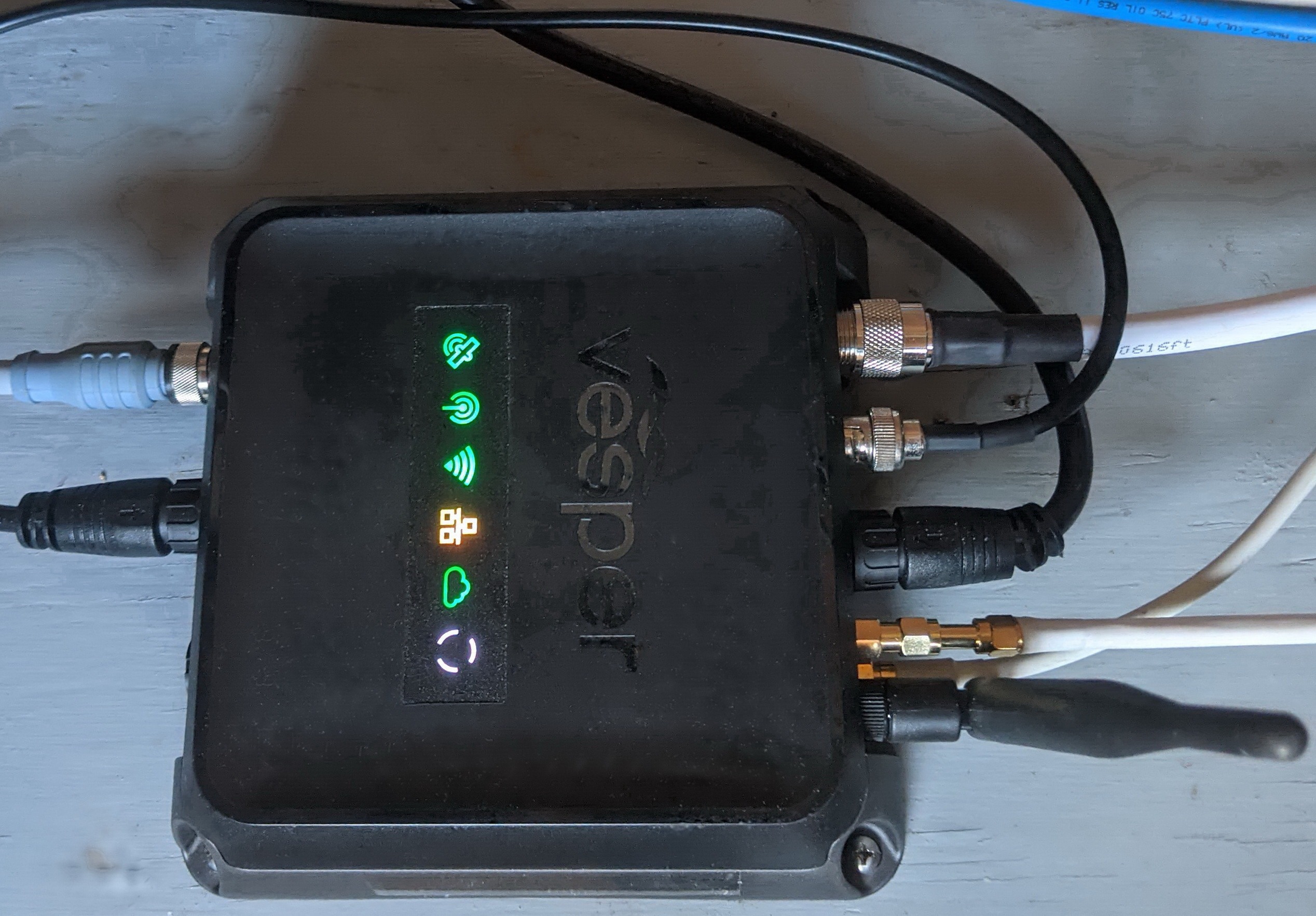







I hope you don’t mind but I put a link to this post on the SSCA and Cruisersforum boards.
Well Ben, none of this should come to a surprise. The Sirius and XM merger was announced almost a year ago now, and the SEC has still not ruled on the matter despite it being a rather simple one so far mergers are concerned. We might have another year to go until things start to happen…
I sent my email. When do we find out where to buy the unit you tested?
It strikes me that if we could cite an example where AIS (might have) made a material difference in the outcome of a marine casualty we’d have a stronger case than “It’ll be gooder.” I don’t think the example need be in US waters – evidence of any casualty averted or reduced in magnitude would likely help.
Along those lines … is there data available from the USCG on accidents? Perhaps accidents that fall into certain categories, such as radar assisted collisions, could provide some round numbers as to how impactful AIS could be, and might be easily explainable to non marine people. E.g. if such data could be included, it might be presented to the FCC as follows …. “where radar requires the user to have a keen sense of the technology and in crossing situations calculate boat headings using 100 yr old grease pencil technology or guestimation that is prone to human error and an accident category known as “radar assisted collision” with xxxx such accidents in 2006, AIS clearly portrays the course and speed of boats in crossing and overtaking situations enabling a boater to take correct action. This is just the tip of the iceberg, as to how many collisions could be avoided with AIS technology, other situations not captured in this data such as … don’t have ready information available”
In the FCC taking a wait and see approach, what are they waiting to see? Are they expecting that boaters might actually start using the products without FCC approval … which is unrealistic if users believe law enforcement will make use of the efficient method available for identifying unauthorized use between the AIS transmission itself and an MMSI datbase that would instantly distinguish the user as a US resident that should know better.
Nick adds:
In talking to a policy wonk friend downtown, he had a slightly different take on the Class B stuff. He said that the FCC may be wrestling with the following conundrum:
1. You approve a device for rec boaters that will give them confidence they’ll be seen
2. While at the same time you allow the commercial boats to filter out that same signal
He said it may be in review by General Council for preparing a “guidance statement”. After 35 years in DC, this sounds so plausible…
Notice that there are only “may”s in this email, YMMV, and all the other standard caveats and denials.
My understanding is that “wait and see” isn’t about AIS specifically but is a general FCC stance. Here’s some confirmation:
********************************************
FCC Commissioner Robert M. McDowell believes in a “wait-and-see” approach that allows for market resolutions when it comes to the net neutrality debate or proposed a la carte mandates for video service providers, he told reporters during an Aug. 8 briefing at his Washington office.
The wait-and-see approach is one he also favors for issues where Congress might shortly weigh in, such as video franchising reform or universal service support for broadband deployment.
Commissioner McDowell said his overall regulatory approach could be distilled down to one word: freedom. “As far as the role of government goes, first of all clear out any unnecessary regulatory underbrush. Let’s let free markets and free people team up together as best they can.”
*******************************************
Of course in this case signing the regulation would actually open a “free market” (fairly free…USCG & CE approvals required). I may modify my letter to reflect this point!
I mailed mine too.
If Smart Radio’s AIS Modem or any other similar device could get limited approval, i.e. only approved to operate on the AIS VHF Data Link but not “Type” approved by IMO and USCG to satisfy SOLAS and USCG AIS carriage requirements, then it would be superior to Class B because you might actually be “seen”.
Fred:
Sorry, but that’s rubbish.
a: the standards are there to ensure that the VDL is protected and the AIS system works – especially important in an emergency. The SR unit not only doesn’t meet the standards, but from reading the published specification, doesn’t stand a hope in h%ll of ever doing so. Use of this device on the network puts all mariners at risk.
b: Class B’s CAN still be seen – I thought this bit of FUD had been comprehensively dismissed, but I see you are still promulgating it for some reason….. please don’t. You’re not doing yourself, the industry or the mariners any favours.
This from a correspondent with a long, deep knowledge of marine regulatory matters:
“Ultimately, we may have to consider intervention from Congress since the FCC has a long history of according maritime issues their lowest priority. Maybe we shouldn’t blame them if the maritime industry accepts it without complaining?”
Write your letter to the FCC Commissioners!
Couldn’t find any USCG data on radar assisted collisions, had to go with this instead …
Dear FCC Commissioners,
I understand that the “Amendment of the Commission’s Rules Regarding Maritime Automatic Identification Systems” (Docket 04–344) is now on the FCC Items on Circulation list, and I write imploring you to review and sign this Amendment as soon as possible.
By your own description within the docket “AIS is a critical component of our Nation’s homeland security, as well as an important tool for enhancing maritime safety.”, and at the CEO briefing meeting at CES in Las Vegas, I clearly heard Michael Copps state the additional high priority the FCC now has in enabling public safety institutions to upgrade and benefit from new communications technologies and dedicated spectrum.
I have been sailing for 10 years recreationally, a user of other collision avoidance technology such as radar for 5 years, and an early adopter of marine electronics in general. I am convinced of the safety value of the AIS class-b equipment I cannot purchase until after this amendment is signed.
I recently had the opportunity to chat with Michael Hilden, captain of the cruise ship Norwegian Gem, about his crews experience with AIS and if he would recommend sailboats such as mine using this technology. Michael was telling me from his experience on the Gem, as well as his prior experience on container ships in Europe, he had a strong recommendation for me. He tells me that “plastic boats such as yours can be much safer with AIS, as our radar systems often cannot see them in moderate ocean swells just like we are experiencing today off New Jersey.”
My belief that this technology is effective and just five signatures away, is also due in part to numerous facts published on the number one marine electronics blog in the US, http://www.panbo.com, including:
– class B transponders are now being used in many countries, and there have been no reports of problems.
– that all the Class B transponders whose distribution awaits the FCC Amendment have already been approved by the U.S. Coast Guard, which, in fact, asked the FCC to expedite its approval.
– that—perhaps unlike some regulations before you—signing this Amendment will enable a free market, not restrict one.
Please enable citizens such as myself to increase our safety as sea, and enable our brave Coast Guard and Homeland Security organizations to benefit from this technology as well.
Sincerely, Dan Corcoran, Huntington, New York
Fred Pot,
In regards to your beliefs that class B may be filtered, is it possible you are misunderstanding something about filtering on high end ship systems?
I had the opportunity to chat with the captain of the spanking new cruise ship Noregian Gem over the holidays. I was asking about AIS and was surprised he told me that they were filtering Class B targets all the time, even in open ocean … but when I questioned him in depth I found out what he meant by “filtering” was that for Class B targets the text that can optionally appear next to the triangle symbol on the chartplotter display is filtered for class-b targets, and only the text, but the text does appear for Class-A targets. E.g. class b targets can still be seen … but unlike class-a targets, the class b target info can only be gotten by placing the cursor on top of the symbol to get the MMSI, speed, heading, etc for the class-b targets. Micheal Hilden, the captain, explained that the screen just becomes to confusing when loaded up with all the text from multiple targets … and not so useful. Also, with class-A targets over a certain size they find it is a feature not to filter that text, as they want to keep an eye on rate of turn and change of heading on the larger ships.
Ahhh, Docket 04-344… what a long and arduous history that has. It didn’t really start out being about Class B.
In the Panbo item “Class B AIS, part” (Oct 27, 2005), there is a comment: “still unsettled dispute with Maritel over use of 87B in the States, but, again, another story”. That story is told very well by Fred Potts in a paper from 2003 called “FCC should revoke MariTEL’s VHF Channel 87B license” available at:
http://www.uais.org/87BStory.doc
In short, the FCC sold one of the international AIS frequencies to Maritel, then decided they needed it back. Maritel fought this until the very end of 2006. The rest of that story is told in the FCC document from July 2006:
http://hraunfoss.fcc.gov/edocs_public/attachmatch/FCC-06-108A1.pdf
Maritel lost, petitioned for reconsideration, then withdrew that. A small part of this FCC document discusses Class B. The relevant paragraphs are 62 – 64, 76 and Appendix C. This FCC document is quite positive about Class B and it proposes that it approve equipment which meets the international standards and is approved by the USCG. It asks for comments on how to insure that the data transmitted by Class B equipment is accurate.
That brings us up to July 2007 when the FCC issues a Public Notice asking for comments about these aspects of Class B, with 30 days for sending comments:
http://hraunfoss.fcc.gov/edocs_public/attachmatch/DA-07-2597A1.pdf
To see all the comments (190 of them up to August 2007), enter “04-344” in box 1 – Proceeding here:
http://fjallfoss.fcc.gov/prod/ecfs/comsrch_v2.cgi
These comments include requests to certify certain Class B transponders, requests for exemptions from the international standard, comments on other’s comments, etc.
If you want to submit a comment, the FCC web page for this is:
http://fjallfoss.fcc.gov/prod/ecfs/upload_v2.cgi
Or, instructions for sending comments by e-mail are here:
http://www.fcc.gov/cgb/ecfs/email.html
Note: I don’t know if they are still accepting comments.
Just a thought. If these AIS devices where placed in bridge supports, would the be better than radar reflections? I was thinking of the two bridge/vessel allissions in the SF Bay recently.
“FCC TO HOLD OPEN COMMISSION MEETING THURSDAY, JANUARY 17, 2008”
http://hraunfoss.fcc.gov/edocs_public/attachmatch/DOC-279411A1.pdf
The the chief of the Wireless Telecommunications Bureau will be in one of the panels.
The meeting can be viewed live on the internet.
I don’t think it’s in the FCC’s role to decide about Class B approvals based on the need for AIS to increase safety and they probably are on-side about that anyway.
AIS on bridges:
“AIS as an aid to navigation can be real AIS where there is an AIS transmitter on the aid; synthetic AIS where a nearby base station transmits the message but it appears to the mariner to have come from the aid; or virtual AIS where there is no physical aid to navigation on the water but a message is transmitted from a shore station which appears on the ship’s receiver as an AIS target.”
(http://www.cil.ie/sh1100x5835.html)
An accident report which says AIS would have helped:
http://bst-tsb.gc.ca/en/reports/marine/2000/m00c0069/m00c0069.asp
An example of why more boats may be required to have Class B AIS in the future:
http://www.marinelink.com/Story/Boater+Causes+Ships+to+Evade-209111.html
I tried to watch the FCC Commision Meeting on line this morning and decided two things. I’m not sure they know what they are doing, and AIS B approval is going to take a very long time. I know that RealAudio (their choice of transmission vehicle) is at least 10 years old and out of the mainstream. Compare to Utube it doesn’t. I was able to hear approximately 20% of the production intelligibly, and the text interpretation was constantly corrupted. This from the Agency that presumes enough technical competence to regulate the industry. Hell, they couldn’t even pronounce some of the terminology correctly! What I did see and hear was exclusively self congratulatory (methinks they doth protest too much) and superficial, more interested in counting the beans than assuring they were edible. Maybe I missed the important stuff.
What is to keep the recreational boaters from just installing a Class A AIS (while awaiting for the Class B AIS approval)?
What is the potential consequence of getting a Class B AIS (from overseas for instance) and putting it into recreational operation?
Jody – I’m guessing te consequences for using an unauthorized transmitting device is a hefty fine from the FCC. Remember, your MMSI is broadcast as a part of the outgoing message. It won’t take “Uncle Charlie” too long to figure out who you are.
I guess one could program a bogus MMSI into the device, but to what purpose? IMHO, better to wait until they get approved and then procure and start using it legally.
Soon (march) a blackbox Class A unit from Comar will be available at an interesting price – so that might be a solution for some!
The Comar CSB200 Class A transponder is awaiting approval. At EUR 2499.00 or about $3,700.00 as being offered by Y-tronic, it is not exactly a bargain.
According to the specs at
http://www.comarsystems.com/CSA200low.pdf
the CSA200 is quite a beast compared to the CSB200.
Power consumption seems to be 84 W instead of 6 W.
Why not just buy a CSB200 (or other Class B) and operate it in what Comar calls “covert mode” (receive only) until it gets approval? That must be legal.
I just received an e-mail from, Ashley Reed
Program Coordinator, Government Affairs, BoatU.S. In it she states, “From what I have heard the FCC does not want to move forward very
quickly on this process or move forward at all. As I’m sure you know, the commissioners are political appointees and this makes the situation
all the more difficult. The next best step for each of you to take would be to write a letter/email to your member of Congress and explain the significance of this situation to you. Your member of Congress might better motivate the members of the FCC commission to move forward.”
I guess it’s time to start writing letters our representatives.
Raul
I got the same note, Raul, and encouraged BoatU.S. to put a call to action and congressional contact information up on their Government Affairs Web pages, as they have done for other issues. I hope they do it as I think it would help a lot of people make their Class B feelings known!
I just sent e-mails to the two Washington State Senators as well as my Congressman, urging them to get involved and ask the FCC to provide approval immediately. Unfortunately the timing may not be right since 100% of their efforts right now are probably focused on protesting the USAF tanker contract award to Northrop/EADS instead of Boeing.
Raul